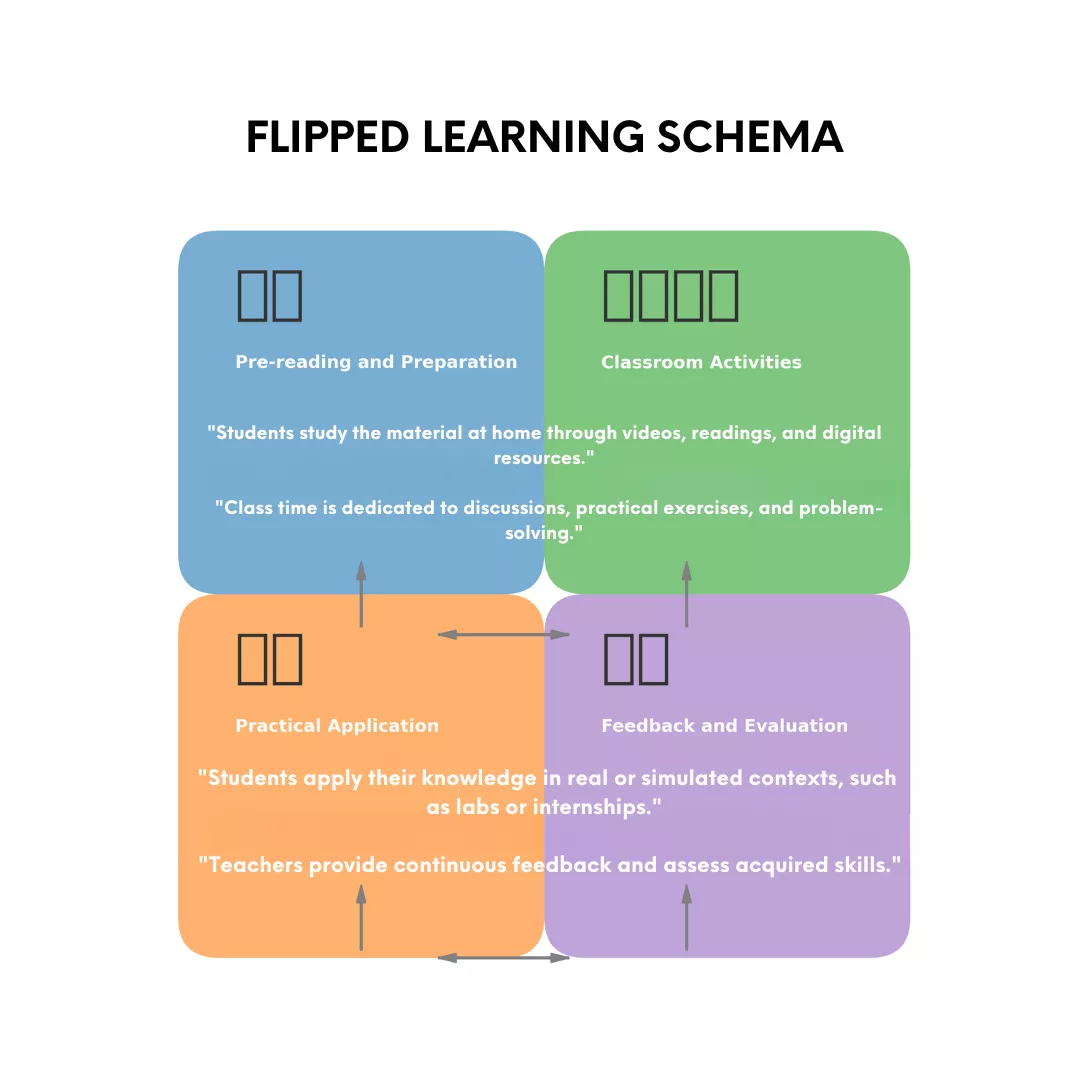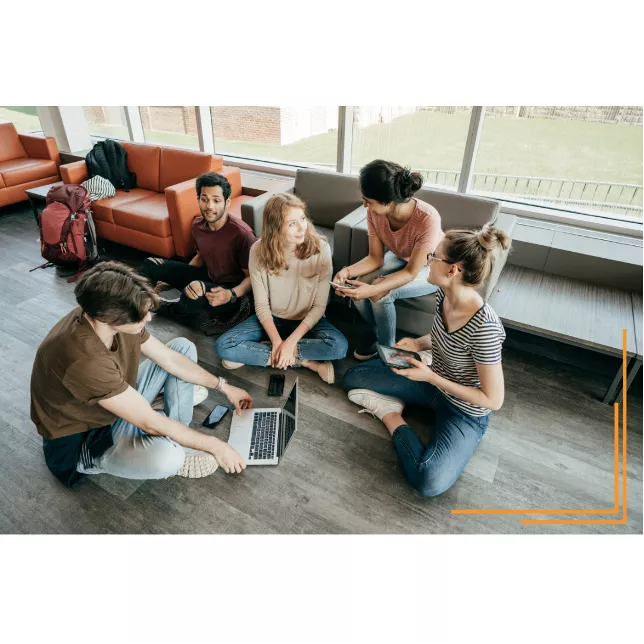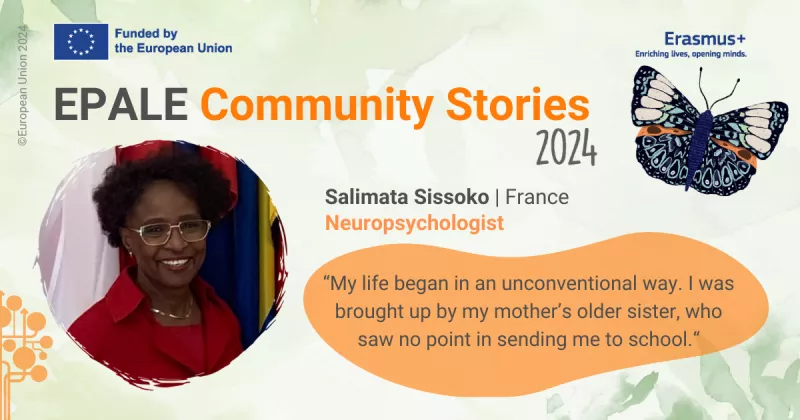Application of Flipped Learning in a Fragile Learning Environment.
Flipped Learning: A Paradigm Shift
Flipped Learning is based on two fundamental principles: the lesson is enjoyed individually (individual learning space), and the classroom activities are dedicated to in-depth study (group learning space), practice, and application of the concepts learned. This approach has several advantages:
- Personalization of learning: Students can access learning materials at their own pace and pace, reviewing content as many times as needed.
- Augmented interaction: Classroom time is leveraged for collaborative work, problem-solving, and discussions, promoting more active and participatory learning.
- Ongoing support: Teachers have more opportunities to provide immediate, personalized feedback.

Application in Vocational Training
In vocational training, flipped learning can be particularly effective.Students often need practical and applied skills, which can best be developed through interactive classroom activities.
In addition, many vocational training students may find themselves in risky situations, such as dropouts, social marginalization, or educational poverty.
Benefits for Drop-Out Students and at Risk of Social Marginalization
Drop-out students and those at risk of social marginalization often face significant difficulties in adhering to traditional models of teaching.Flipped Learning offers several benefits for these groups:
- Flexibility: Students can access educational content anytime and anywhere, allowing them to manage their time more independently.
- Active involvement: The interactive approach in the classroom can increase students’ interest and motivation, reducing the risk of dropping out of school.
- Personalized support: Teachers can spend more time supporting students individually, addressing their specific needs and challenges.

Support for Students in Educational Poverty
Students in educational poverty often lack the resources needed for effective learning. Especially the support in Fragile Educative Environment seams to be necessary. Flipped Learning can help mitigate some of these barriers:
- Access to content: Digital resources (videos, podcasts, online readings) support students’ access to quality learning materials even outside the school environment.
- Strengthening digital skills: Educational technologies foster the development of digital skills, which are essential in the contemporary world of work.
- Safe learning environments: Classroom activities can be used to create safe and inclusive learning environments where students feel supported and valued.

Fragile Educative Environment
In fragile educational contexts, where resources are limited, and learning conditions can be challenging, flipped learning offers a flexible and adaptable model:
- Efficient use of resources: Schools (or other educational institutions) can optimize available technological resources, focusing on collaborative and problem-solving activities in the classroom.
- Community involvement: Flipped learning can facilitate the participation of families and the local community, creating a support network for students.
- Educational resilience: This approach promotes adaptability and resilience, preparing students to handle future challenges with greater proficiency and confidence.
Fragile Educative Environment & Flipped Learning – Conclusions and Takeaways
The application of Flipped Learning in vocational training represents a promising strategy to support drop-out students at risk of social marginalization in educational poverty and fragile educational contexts. By personalizing learning, increasing interaction, and providing ongoing support, flipped learning can help create more inclusive, motivating, and effective learning environments. Continued investment in technology resources, teacher training, and a strong commitment to educational inclusion and equity is essential to maximize these benefits.
With this vision, the DigiComPass consortium (Erasmus+ Project Funded by the European Commission) is researching and developing a learning model based on Flipped Learning that has digital skills as its learning content. Users will have the opportunity to follow a learning path built with this innovative pedagogy at the end of which, through a self-assessment system, they will obtain the badges necessary to obtain the PASS of DIGITAL SKILLS.
The project’s lead body, the University of Cyprus, will develop a skills-learning platform on which various operations can be carried out. The platform’s user-friendly structure will guarantee the content’s use by different targets: adults, students, vocational training audiences, high school students, and professionals.





